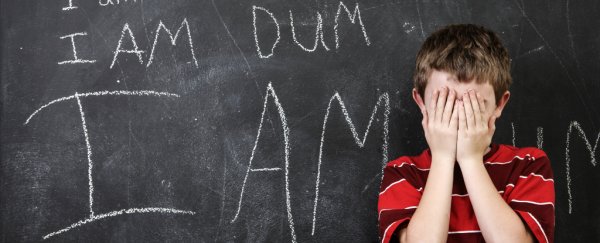How we feel about ourselves could be set as early as the age of five, according to the latest research from academics at the University of Washington. A new technique was used to implicitly measure the self-esteem of more than 200 five-year-olds, the youngest ever group of participants in a study of this nature.
"Our work provides the earliest glimpse to date of how preschoolers sense their selves," commented the study's lead author Dario Cvencek. "We found that as young as five years of age self-esteem is established strongly enough to be measured, and we can measure it using sensitive techniques."
Of course getting kids that young to talk about ideas of 'self' is no easy task, which is why these innovative "sensitive techniques" were employed – the children were asked to take part in a word association game, first claiming a flag to represent themselves and then linking words such as "good" or "bad" with it. Both girls and boys associated themselves with more positive words than negative words, the study found.
The kids were also quizzed on gender identity and whether they preferred the company of boys or girls. Not only does it seem that young children have strong feelings of self-esteem at the age of five, it also appears that these feelings are linked to gender identities and in-group preferences.
Cvencek and his team now want to work with even younger subjects to help establish how these feelings of self-esteem are formed before kids are old enough to start going to school.
"Some scientists consider preschoolers too young to have developed a positive or negative sense about themselves," explained co-author Andrew Meltzoff. "Our findings suggest that self-esteem, feeling good or bad about yourself, is fundamental. It is a social mindset children bring to school with them, not something they develop in school."
Psychologists had already established that five-year-olds could understand some of their positive features and characteristics – like being good at running or working with letters – but this new research suggests they have a much broader sense of their overall "goodness as a person" as well, according to the researchers.
The Preschool Implicit Association Test (PSIAT) devised by the researchers is actually a variation on a similar test run on adults: it aims to highlight biases around race, gender, age and other topics that people don't necessarily know they have.
The team behind the study, now published in The Journal of Experimental Social Psychology, is going to follow up with the same children to see whether health or success later on in school life is related to feelings of self-esteem at the age of five.
